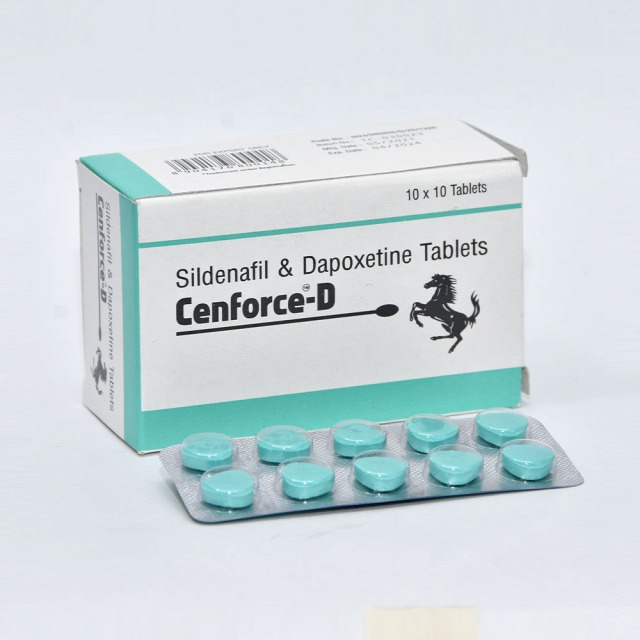
If you are experiencing a flaccid penis, even when sexually aroused, you are not alone. Millions of young and older men use ED medication as a short-term treatment for male impotence, also known as erectile dysfunction. There are a few effective short-term erectile dysfunction treatments, such as tadalafil-powered Extra Super Tadarise can bring your penis to life.
How Do You Know You Need Extra Super Tadarise?
You will need Extra Super Tadarise 100 mg if you have male impotence, commonly known as erectile dysfunction (ED). It is a condition where a man finds it difficult to achieve or maintain an erection firm enough for sexual intercourse. Although it is natural to experience occasional difficulties with erections, consistent issues can indicate underlying health concerns. Understanding the symptoms of male impotence and knowing how to determine if you have ED are crucial first steps toward treatment.
Symptoms of Male Impotence
Male impotence presents itself in multiple ways, and the symptoms can differ from person to person. Below are the most common symptoms of erectile dysfunction:
Difficulty Achieving an Erection
The most noticeable symptom of male impotence is the inability to achieve an erection. It can occur even when there is sexual arousal or stimulation. If you find it challenging to get an erection on most occasions, it is a sign of erectile dysfunction.
Difficulty Maintaining an Erection
Another key symptom of ED is the inability to maintain an erection long enough to complete sexual intercourse. Some men can initially get an erection, but it may soften or get slack before or during sex, which is frustrating and leads to a fall in confidence.
Reduced Sexual Desire
A decrease in sexual desire or interest in sexual activity can also be a sign of male impotence. Psychological factors, such as anxiety, stress, depression, or hormonal imbalances, can cause impotence. A lack of interest in sexual intimacy may point to erectile dysfunction, especially if accompanied by other symptoms.
Premature or Delayed Ejaculation
While not a classic symptom of impotence, issues related to ejaculation—such as premature or delayed ejaculation—may lead to erectile dysfunction. The inability to control ejaculation can accompany erection difficulties.
Anxiety about Sexual Performance
Feelings of stress or anxiety about your sexual performance are common among men with ED. This anxiety often becomes a self-perpetuating cycle, where fear of failure leads to further erectile issues. Worrying or fear about your ability to achieve or maintain an erection can make it an uphill task.
How to Determine Male Impotence
If you suspect male impotence, determine if your symptoms are a sign of ED and seek medical help.
Here are some steps to help determine if you have erectile dysfunction:
Monitor the Frequency of Symptoms
The first step in determining if you have ED is to track the frequency or occurrence of your symptoms. Occasional difficulty with erections is normal and can be because of a variety of temporary factors like stress or fatigue. However, if the symptoms are consistent and persist for over three months, it may mean erectile dysfunction that requires attention.
Assess Underlying Health Conditions
Underlying health problems such as cardiovascular disease, diabetes, high blood pressure, or obesity can cause male impotence. Evaluate whether you have any medical conditions contributing to your symptoms. A visit to your healthcare provider can help assess any underlying health issues affecting your erectile function.
Consider Psychological Factors
Psychological factors like anxiety, depression, and stress can contribute to male impotence. If you have been dealing with high levels of stress or emotional health issues, these could be affecting your ability to achieve and maintain an erection. A mental health professional can help identify any psychological causes and provide support.
Nocturnal Penile Tumescence Test
One way to determine physical or psychological factors is by monitoring nocturnal erections. Healthy men typically experience several erections during sleep. A nocturnal penile tumescence (NPT) test assesses whether you have erections during sleep. If erections occur at night but not during sexual activity, it could mean that psychological factors are contributing to impotence.
Physical Examination and Medical History
Your healthcare provider will conduct a physical examination to check for any physical issues contributing to the ED. They will also ask about your medical history, lifestyle, and medications that could be affecting your sexual health. Being open about your symptoms and any changes in your health can help your doctor make an accurate diagnosis.
Blood Tests
A doctor may request blood tests to check for conditions such as diabetes, high cholesterol, or hormone imbalances, all of which can contribute to erectile dysfunction. Low levels of testosterone or other hormonal issues can also lead to impotence and may need treatment.
When to Seek Medical Help
It is essential to seek medical help if you notice consistent symptoms of impotence that interfere with your quality of life. Erectile dysfunction can often be a symptom of an underlying health issue that needs medical intervention, such as cardiovascular disease or diabetes. Early diagnosis and treatment can help improve erectile function and prevent further health complications.
You should also seek help if impotence is causing emotional distress, affecting your relationships, or decreasing self-confidence. A healthcare provider can offer advice on treatment options that can help restore erectile function and improve your overall well-being.
Conclusion
Male impotence is a common and often treatable condition that affects many men. Recognizing the symptoms, such as difficulty achieving or maintaining an erection, reduced sexual desire, and performance anxiety, is the first step toward determining if you have erectile dysfunction. By seeking medical help, evaluating your overall health, and considering any psychological factors, you can regain your sexual health.





